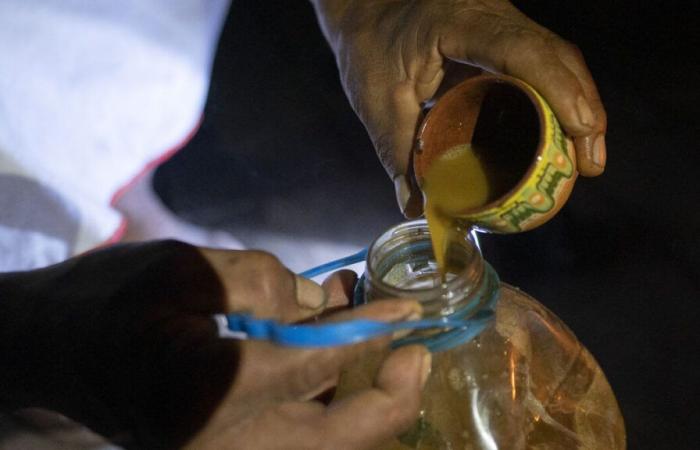One addiction versus another? University College London has just launched a surprising therapeutic trial to try to reduce problematic alcohol consumption.
According to The Guardian, experts are seeking evidence that dimethyltryptamine (DMT), a powerful psychedelic used in healing ceremonies by indigenous groups in the Amazon, could help in this fight. This powerful hallucinogen is the active ingredient in ayahuasca, a drink used for millennia by South American shamans.
“Current treatments do not work for a large proportion of people,” explains Professor Ravi Das, co-director of the trial at University College London, to the English daily. When it comes to alcohol addiction, 50% of people relapse within three months and around 60-70% within three years. (…) There is therefore an urgent need for new drugs and new therapeutic approaches. »
In its pure form, DMT is one of the most powerful psychoactive substances found in nature. It can cause out-of-body experiences, hallucinations, and significant visions of colorful geometric landscapes.
-For the study, specialists want to give volunteers a single intravenous dose of the drug, whose effects only last about 15 minutes, while a control group receives a placebo or a non-hallucinogenic drug. The goal is to see if DMT can regenerate the brain’s reward system, which normally pushes drinkers to return to alcohol.
A few volunteers have already started the trial but University College London is currently looking for people with a particular profile: “Regular drinkers aged 21 to 65 and without a formal diagnosis of an alcohol disorder. » Precision all the same: the team of experts particularly emphasizes the need to administer the medication under medical supervision.






